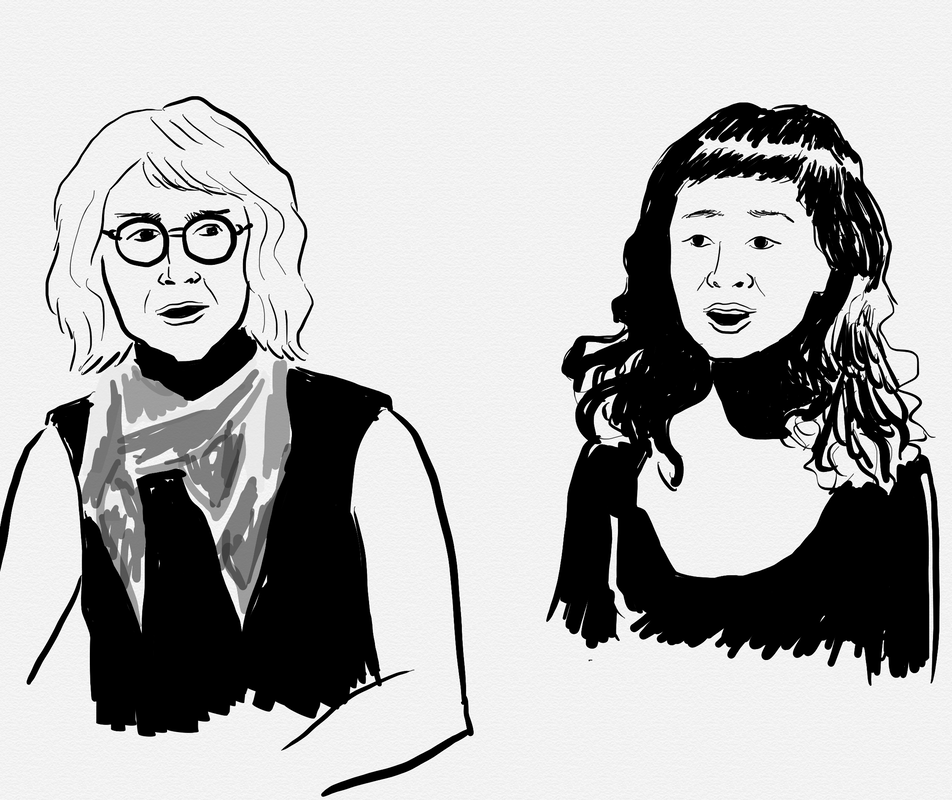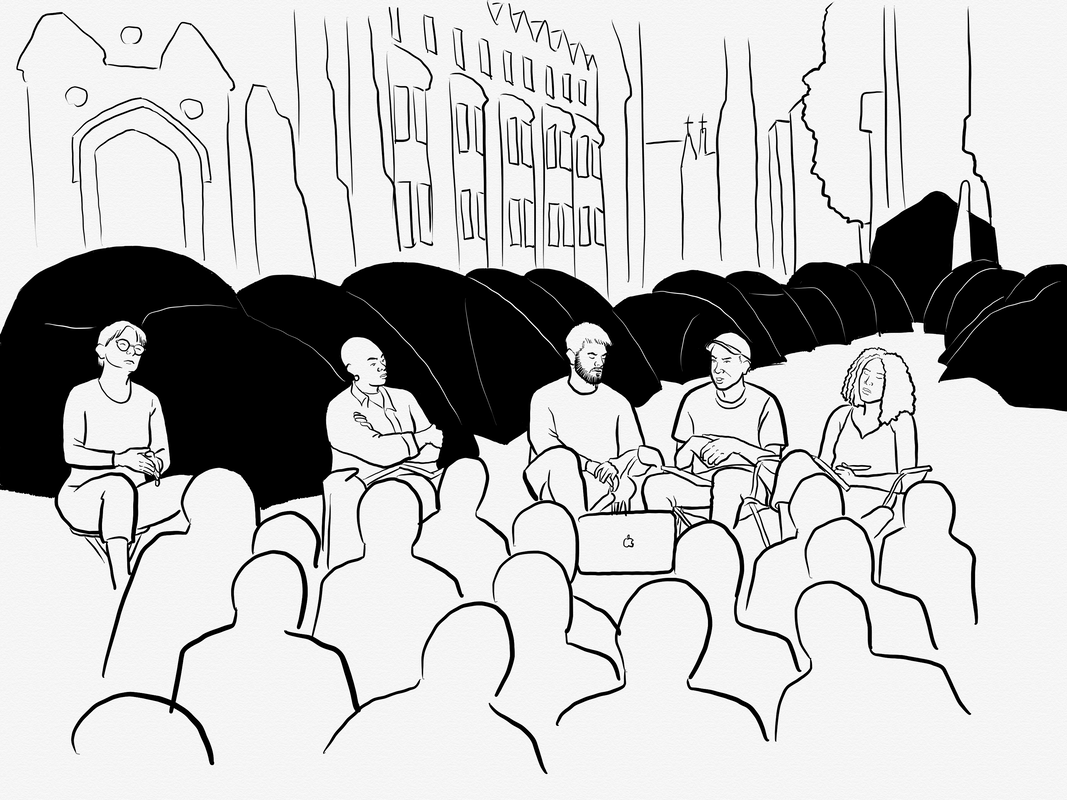|
The Migrants in Culture Workshop titled Writing Ourselves into the Future: Abolition and Creative Organising was led by two founding members of Migrants in Culture, Joon-Lynn Goh (Co-Founding Director & Organiser) and Diana Damian Martin (Co-Founder & Researcher). Migrants in Culture is a migrant led design agency resourcing organisers to build more creative and powerful social movements and building collective capacity to imagine and live without borders. This workshop passed on MIC’s somatic practices and guided participants to write letters to our chosen ancestors, to someone from a future generation, and to ourselves. MIC’s workshop relayed their powerful evolving practice of border abolition and imagining a world without borders through science-fiction writing. In this spirit, MICs praxis asked questions like: Are we practising what we want to become? How are we imagining ourselves into the future? What are we designing to replace borders?
|
|
These salient questions also steered the conference closing Keynote Discussion, which was held at the student encampment ‘Cambridge for Palestine’. The student encampment, connected into a global constellation of student encampments for Free Palestine, had been set to protest the genocide in Gaza and the University’s complicity in it, and to demand from the University to divest from companies involved in supplying arms to Israel. The encampment was a common space of struggle, collaboration, solidarity, and learning that provided a perfect home to the Debordering Futures conference’s closing Keynote. This session titled Abolition, Borders and Migrant Justice, examined the often neglected yet powerful interconnections of border abolition with anti-racist, anti-colonial, anti-capitalist and anti-imperial resistance. The discussion alerted to the different guises of colonial power transnationally and the need to anticipate violent institutional responses to non-violent protest. The session’s discussant, author and feminist activist Lola Olufemi reminded that abolitionist organising requires building foundations by not merely talking the talk but walking the talk.
Adam Elliot-Cooper discussed the history of abolition in Britain from the Newham Alternatives Project, the 18th century abolitionist sentiments, to Black resistance. Adam noted that ‘Black power was abolitionist and abolition is anti- imperialist.’ Historically speaking, Gracie Mae Bradley explored abolition as an organising tool to transform the conditions that sanction institutionalised harm like borders and prisons in solidarity with abolition feminism. She echoed the writing of Angela Davis, former Black Panther party member: ‘Prisons do not disappear social problems, they disappear human beings.’ Akram Salhab traced global lineages of conflict alongside the present genocidal war against Palestine. Akram refused a politics of liberal respectability recognising ongoing hierarchies of humanity and Israeli dehumanisation of Palestinian political prisoners, its ‘barbarism, savagery and sadism.’ In solidarity with the encampment, Akram discussed student and staff coalitions as resistance at institutions of higher learning. ‘What will you remember? What did you forget?’ asked Bhanu Kapil as a reflection on the Debordering Futures conference. Moving between the past, present, and future as embodied temporalities implicated in each other, the collective effort of this event was to share and reflect on the past and ongoing violence, harm, and resistance; how the present propels possibilities of solidarity, healing, and thriving otherwise. As we shared critical decolonial knowledge of violence and undeniable struggles against borders, communed together in a transdisciplinary space of intellectual and creative production, we also see the event itself as an act of collective weaving of a borderless reality (not-yet) to come. Hopefully, this short but productive moment will inspire us to reconsider the limits and possibilities of our dreaming, thinking and acting against borders from the multiple, intersecting positionalities that we embody. |




